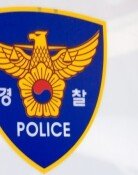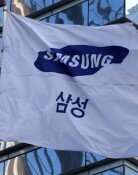KOSPI Tumbles Below 1,900 Point Mark
KOSPI Tumbles Below 1,900 Point Mark
Posted July. 28, 2007 03:33,
South Korea`s benchmark share, which briefly rose past the 2,000-level on Tuesday, for the first time, plunged sharply across the board for two straight days. The benchmark KOSPI on the Seoul stock market on July 27 tumbled more than four percent, registering the second largest decline in history. The tech-heavy KOSDAQ also dropped over three percent.
As the Key index shed more than 120 points, securities firms were inundated with angry calls from investors asking if a full-scale intervention was underway. Those who entered the stock market later could not hide their distress. However, there were many other investors who tried to use the fall to their advantage by purchasing funds, anticipating a bullish swing in the near future.
Experts predict that the downward momentum will not continue because there is no fundamental problem in the domestic stock markets. But they dont expect the KOSPI index to reach the 2,000 point mark again in the short-term.
As the KOSPI index lost more than 100 points over the course of the day, most investors seemed disappointed. Many customers said some level of adjustment is understandable, but foreigners selling sprees, along with the biggest downturn in stock price, could negatively affect the entire market. Some investors expressed obvious frustration, said Lee Hye-jeong, an analyst at Woori Securities Mok-dong branch in Seoul. However, there was little sign of individual investors involvement; the prevailing atmosphere for the investors was to watch the trend for a while. An expert at Meritz Securities said, Investors seemed worried but they remained cautious and calm.
There were even some investors using this correction period as an opportunity for investment. Pak Geum-yeong, team manager at Korea Investment, said, There are ongoing calls for additional buy orders for stock-type funds from customers. With an extra correction in mind, most of them purchased the funds on installment plans. We had not received requests for fund buy-backs; only additional buy orders have continued, said Gwon Jeong-seon, another team manager at Gwangju branch. Analyst Lee at Woori securities also said, A number of customers are actively engaged in indirect investment by purchasing stock-type funds.
As of July 26, the total amount of money that South Koreans have poured into funds reached an eight-year record high, exceeding over 262.7 trillion won, up from the 262.5 trillion won in July 22, 1999, according to the Asset Management Association of Korea.
Individual direct investors waiting for an adequate investment opportunity made aggressive moves into stocks. They invested in more than 710 billion won worth of stocks on this day alone; the highest in net buying.
In contrast, foreign investors sold shares worth about 840 billion won, the highest in net selling. Foreigners sold shares worth more than 4.2 trillion won during their ten-day selling spree from July 13. Samsung Electronics Co., which is now under tax proves, led the losses, shedding 4.79 percent or 30,000 won to 596,000 won. POSCO dropped 4.44 percent to 517,000, and KEPCO fell 5.45 percent to 43,400 won.
Shim Jae-yeop, investment strategy expert at Meritz Securities, said, Foreigners selling their stocks occurs at the same time on stock exchanges around the world. Americas housing market problems caused by the sub-prime mortgage market had a negative impact on interest rates and global stock markets. He also added that, Given the possibility of the end of Yen carry trade due to the Japanese currency appreciation, foreigners selling sprees are likely to continue.
Most analysts agree that the index is unlikely to fall below 1,850, with the downward velocity stabilizing around that level; however, they also said the KOPSI would take time to return to its current level.
Cho Yoon-nam, an analyst at Dae Shin Securities, pointed out, Considering previous cases, it usually takes time for stock markets to recover from initial shocks, especially after suffering a heavy blow such as that of today. This is mainly because of the influence of investor.
Considering the fact that Korean stock prices have been on the rise since March, we have to accept the possibility of corrections occurring. I believe the index will rise again after one or two months of correction, said Kim Hak-gyun, analyst at Korea Investment and Securities. He suggested the downward momentum would stall at around 1,850.
Lee Jong-woo of Hanwha Securites commented, The main index may possibly fall further to 1,800. The market would recover gradually, but it will need considerable time before the KOSPI index reenters the 2,000 point region. Lee Seung-woo of Shin Young Securities said, The correction is expected to continue by next week.
swon@donga.com aryssong@donga.com







